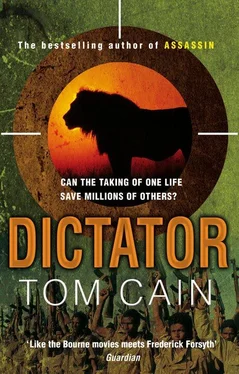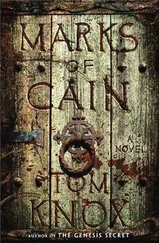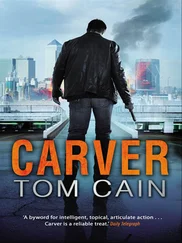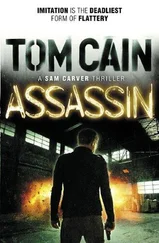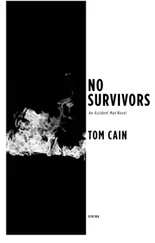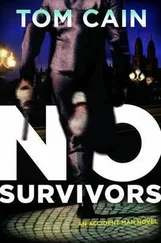Tom Cain - Dictator
Здесь есть возможность читать онлайн «Tom Cain - Dictator» весь текст электронной книги совершенно бесплатно (целиком полную версию без сокращений). В некоторых случаях можно слушать аудио, скачать через торрент в формате fb2 и присутствует краткое содержание. Жанр: Триллер, на английском языке. Описание произведения, (предисловие) а так же отзывы посетителей доступны на портале библиотеки ЛибКат.
- Название:Dictator
- Автор:
- Жанр:
- Год:неизвестен
- ISBN:нет данных
- Рейтинг книги:5 / 5. Голосов: 1
-
Избранное:Добавить в избранное
- Отзывы:
-
Ваша оценка:
- 100
- 1
- 2
- 3
- 4
- 5
Dictator: краткое содержание, описание и аннотация
Предлагаем к чтению аннотацию, описание, краткое содержание или предисловие (зависит от того, что написал сам автор книги «Dictator»). Если вы не нашли необходимую информацию о книге — напишите в комментариях, мы постараемся отыскать её.
Dictator — читать онлайн бесплатно полную книгу (весь текст) целиком
Ниже представлен текст книги, разбитый по страницам. Система сохранения места последней прочитанной страницы, позволяет с удобством читать онлайн бесплатно книгу «Dictator», без необходимости каждый раз заново искать на чём Вы остановились. Поставьте закладку, и сможете в любой момент перейти на страницу, на которой закончили чтение.
Интервал:
Закладка:
‘So where do Hong Kong and the diamonds fit into all this?’ asked Carver.
‘Simple,’ said Zalika. ‘They’re Faith’s Plan B. If it all goes wrong and she gets kicked out along with her husband, then she’s got somewhere to go and a very large amount of money, she hopes, to keep her in comfort and idleness when she gets there.’
‘And what does it all have to do with us?’
Zalika smiled. ‘Well, the Gushungos have a hard time getting any bank to take their business. So when they’re in Hong Kong they keep their diamonds at home. Now, what if someone tried to steal those diamonds?’
‘The robbery might go wrong, people might get hurt and no one would suspect a political motive,’ said Carver. ‘It’s an excellent idea…’
‘Thank you,’ said Zalika, giving an ironic little bow.
‘… but I might have one that’s even better.’
‘Really? What might that be?’
She looked him straight in the eye, challenging him.
‘I don’t know yet. I’ll tell you when I get it.’
‘So, Sam,’ said Klerk, cutting through the growing tension, ‘you will accept my offer?’
‘I don’t know that, either,’ said Carver. ‘I’ll give you my answer tomorrow afternoon, right here, seventeen hundred hours. You happy with that?’
‘It sounds like I don’t have a choice. Ja, I can live with tomorrow afternoon. Before the meeting we will go shooting. Then we will talk. Meanwhile, let’s eat.’ He glared at Carver and Zalika. ‘You two can sort out your differences over Jean-Pierre’s damned truffle souffles.’
30
There was a time when Severn Road might easily have been a desirable neighbourhood in the stockbroker belt of Surrey. The substantial houses, set amid croquet lawns, tennis courts and shrubberies, had all been built in the 1930s. They had steeply gabled roofs, half-timbered mock Tudor facades and verandas on which privileged ladies, burdened neither by jobs nor household chores, could comfortably take their tea. The men who owned them had all been educated at the same small group of private boarding schools and shared identical, unquestioned assumptions about their innate superiority, the lesser status of anyone unfortunate enough to be black, brown, yellow or French, and the utter deviousness of Jews.
Yet Severn Road lay not in southern England but southern Africa, in what had once been a suburb of Fort Shrewsbury, capital of British Mashonaland. Its houses were built for the families of the colonial administrators, army officers and businessmen who ran this particular outpost of Empire, as well as the native servants who tended to their needs. For half a century, nothing changed. Then a civil war was fought and lost and British Mashonaland became the independent state of Malemba. Fort Shrewsbury changed its name to Sindele and the white inhabitants of Severn Road made way for a new governing class of African bureaucrats, lawyers and entrepreneurs. By and large, they kept on the servants who had once waited upon their country’s white masters. They even retained some of the old furniture, left behind as the whites fled for the old country. The new bosses were, in some respects, just the same as the old ones.
So another twenty years went by, and Severn Road remained as exclusive and comfortable as it had always been. Then Henderson Gushungo made his fateful decision to cleanse his nation of the white farmers and entrepreneurs he hated with such a burning passion. The economy promptly collapsed, the notionally democratic government became a tyrannical dictatorship, and Severn Road was changed beyond all recognition. The houses were stripped of their contents as the people who lived in them sold everything they could, simply to make a few instantly worthless Malemban dollars. Then they were subdivided as rooms were rented out. Families half-a-dozen strong were crammed into bedrooms intended for a single pampered child; grand living rooms became makeshift dormitories; floorboards were lifted for firewood; crude sheets of plastic were nailed over holes in roofs whose tiles had not so long before been kept in immaculate repair.
Mary Utseya and her baby son Peter had been sharing part of the old dining room at No. 15 Severn Road with three other women and their children for the past four months, ever since Mary’s husband Henry, a soldier in the Malemban army, was killed in action in the Congo. She had been forced to leave the married quarters where she and Henry lived. With the government in no shape to pay her a widow’s pension, Mary had no way of renting a place of her own and had counted herself fortunate that a friend had offered her a few square feet on the dining-room floor.
Within a week or two of Mary’s arrival at Severn Road there had been a presidential election. Loudspeaker vans filled with armed men had driven down the street warning the inhabitants of the terrible consequences of voting for the treacherous Popular Freedom Movement and its lying, unprincipled leader Patrick Tshonga (who was, they added, a notorious homosexual and soon to die from AIDS). Mary was not registered to vote at the nearby polling station and had no means of getting back to her old neighbourhood, so she did not vote. Had she done so, however, she would certainly have sided with the rest of Severn Road’s people, who overwhelmingly ignored the threats of Gushungo’s thugs and voted for Tshonga. They knew that they were wasting their time, since Gushungo would never accept the result. But they voted anyway.
Now, on a Friday night in May, with the ground still damp from an afternoon downpour, they were going to pay for their impudence.
The operation was carried out with a brutal ruthlessness honed by constant repetition: many, many people had already suffered the fate that awaited the people of Severn Road. The two ends of the road were blocked. Patrols were posted in neighbouring streets to catch anyone who tried to escape over back walls and garden fences. Then the military trucks arrived, one for every house. The trucks were organized in groups of four, three soldiers to a truck, each group under the command of a sergeant.
They did not bother to knock. Front doors were kicked or if necessary blown open. Warning shots were fired into the ceiling to cower the inhabitants, the muzzle flashes blazing in the gloomy interiors, where the only light came from the occasional gas or meths-fuelled lantern. Soldiers went in shouting at the tops of their voices and swinging their gun-butts with indiscriminate abandon. If they were lucky, the people crammed into the houses had time to grab a few belongings and even some food or water before they were herded at bayonet point on to the trucks, but many clambered into the bare open-topped cargo bays with nothing more than the clothes on their backs.
Mary Utseya was relatively fortunate. She managed to sling a canvas bag across her shoulder and stuff it with a bottle of milk, a couple of biscuits and a clean nappy-cloth for baby Peter. All she kept for herself was a small framed picture of her dead husband Henry. It had been taken on his last leave home before he died. He was dressed in his army uniform, smiling proudly at the camera as he showed off the corporal’s stripes he had just been awarded.
It was only when one of the soldiers grabbed her upper arm and shoved her up on to the truck that Mary noticed that his uniform carried exactly the same regimental insignia as Henry’s. These men were his old comrades, his brothers in arms.
‘Did you know Henry Utseya?’ she babbled, hoping she might somehow get better treatment if the soldier knew her man had belonged to his unit. ‘Please! He was in your regiment. He was killed in-’
Mary was silenced by a slap to the side of her head. The blow sent her spinning across the floor of the cargo bay. She dropped Peter, who started crying, bawling with the banshee volume that even the tiniest baby can generate. Her face still stinging, her mind dazed and her vision blurred by the soldier’s slap, she scrabbled half-blindly around the truck, desperately trying to get to her baby before the soldier silenced him for good. She bumped into an old man, who lashed out at her with his boot. A woman started screaming. More people kept being shoved over the tailboard into the cargo bay, terrifying Mary, who felt sure her child would be trampled.
Читать дальшеИнтервал:
Закладка:
Похожие книги на «Dictator»
Представляем Вашему вниманию похожие книги на «Dictator» списком для выбора. Мы отобрали схожую по названию и смыслу литературу в надежде предоставить читателям больше вариантов отыскать новые, интересные, ещё непрочитанные произведения.
Обсуждение, отзывы о книге «Dictator» и просто собственные мнения читателей. Оставьте ваши комментарии, напишите, что Вы думаете о произведении, его смысле или главных героях. Укажите что конкретно понравилось, а что нет, и почему Вы так считаете.
